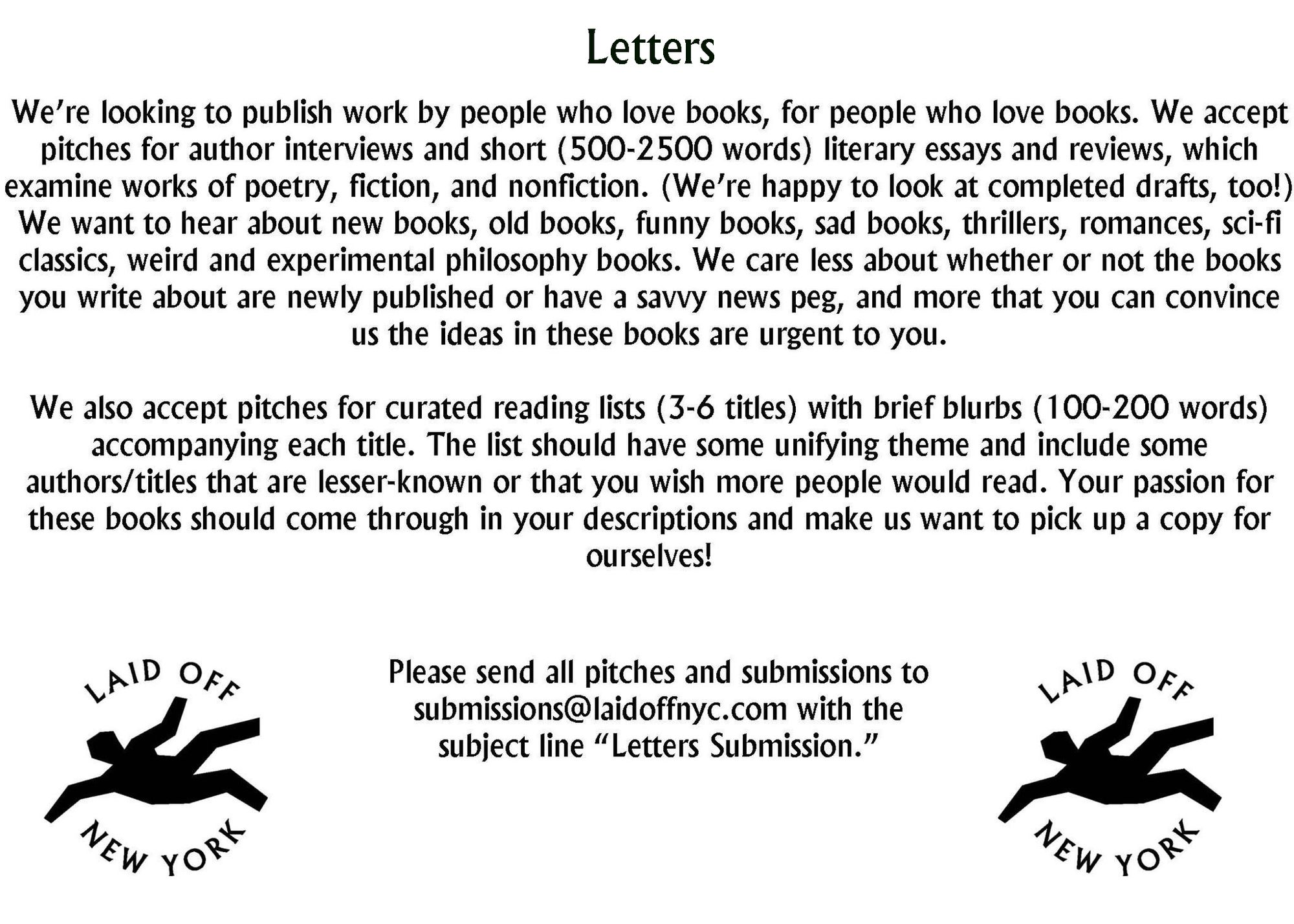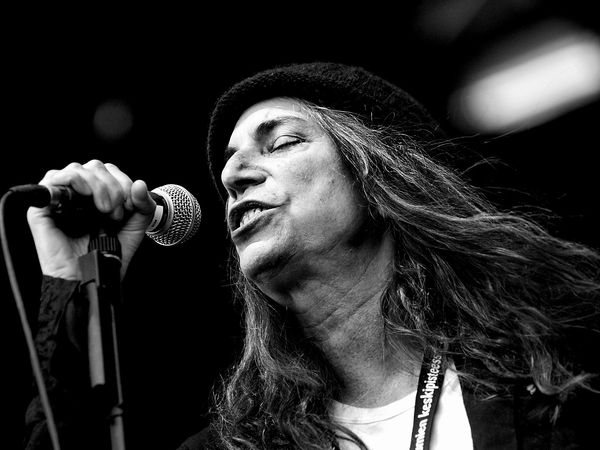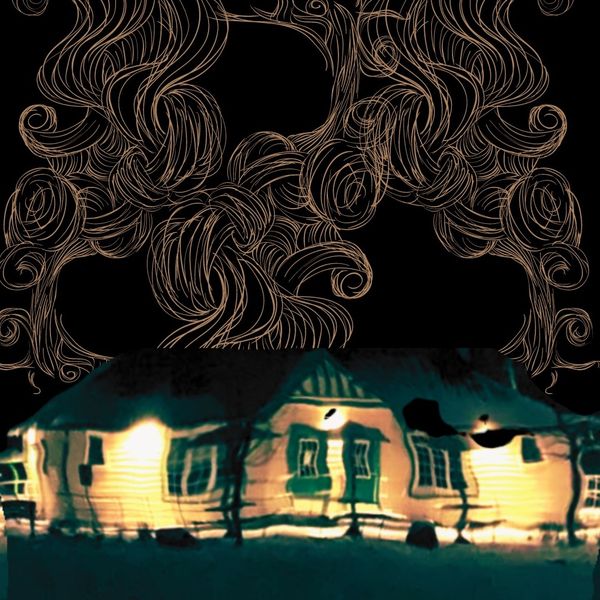a short story by Guillermo Manning
The pain is gone. There is no illness in my body. I have left reality behind. The tumor that pressed my brain and prevented me from walking and writing just vanished. I can think again. I can see and feel the way I used to when I was a boy and I thought I could walk on thin ice, imagining it would never break.
Until it broke and I fell in cold water.
It happened in 1946 in East Hampton, the day of my tenth birthday, when my life in the world of living began. The organs inside my body screamed. The blood in my veins stopped circulating as my legs went numb. I could have died then but I didn't. I simply went down to tune my mind and learn how to adapt when the body is in free-fall, when the vessel of your mind's eye refuses to follow a vision, when the world needs to be born again. Listen to the mind when the body falls. Burn your eyes looking at the moon. Dance to Beethoven's Hammerklavier Sonata in the middle of the night. Read the poems written at the edge of reason. Listen to Pound and Mallarmé. Invent a life worth living. My eyes used to grow bigger when reciting Artaud. My hands violently held the pen while writing my diary and the poems I knew I would throw away. My legs broke the waves of the Pacific Ocean chasing Van's naked body—my poet friend. The pain is gone. I can see it all at once, everything covered in light: my hands, my legs, my eyes, the few verses I wrote and the ones I translated, the places I visited, the poets I met, the bodies I loved. I did my best to invent a new life. I leave everything to language now. The words that form my name will be my last.
In 1944 I stood in the middle of the schoolyard and shouted moon, moon! The sky, illuminated by the sun, transparent and blue, could not hide the moon, which, at noon, was there for all to see, like an exile who refuses to disappear. Other kids followed me, shouting moon! The teachers looked up but didn't appreciate the revelation. They took the kids inside but they kept shouting moon! This went on for weeks. I had discovered that the moon and the sun can share the sky during the day. I became “Moon.” In East Hampton I wasn't Dave or David—I was Moon. Years later, I found meaning to my revelation: the moon is a Deity who abandoned us. This is an old Gnostic doctrine. Somewhere in my diaries I wrote that the chronological events we narrate rarely relate to the plot as the mind experiences it: I pointed to the sky but my mind's eye found a God, and in it I saw pain and pleasure, naked bodies suffering in love, abandonment, reunification, fire.
I have encountered many gods. That is the purpose of literature, to tell stories, have gods as characters, curse them and make them fuck. Think of Ovid and his Metamorphoses, the book that began my own metamorphosis. When I was at Dartmouth, I learned how to read Greek and Latin; then Jack Hirschman, the poet, my teacher ("In the beginning, I was soused with words…") introduced me to the work of Jean Genet, William Burroughs, and Antonin Artaud. During those days I participated in a poetry contest that Sylvia Plath won. I told a reporter that serious writing was not understood. Marianne Moore, one of the jurors, advised me to do something else for a living. Before leaving college, I met Ezra Pound at St. Elizabeth's Hospital. He had the pragmatic curiosity of an old man who has worked his whole life; he insisted he didn't read anything unless it would teach him something, but it was impossible to teach him anything. If you know the portrait Wyndham Lewis made of him, you've seen him the way I did, just older and more tired. My essay about Pound was well received. I started sending columns to the East Hampton Star. I went to France to become an academic. At La Sorbonne, I continued studying classics. I made the European aesthetic my own. I made French literature my map and road. I started translating Artaud. I went to Harvard and wrote about Proust. I was en route to becoming a prominent academic, one who looks at the world from a window, but Van stopped me…
…and I followed him.
Picture him swimming at a beach in Oaxaca. His heavenly thin and sick body jumping into the water. I pondered our place in the tradition of naked men who have shared the sea. We slept with prostitutes and were high in the middle of a place that claimed to be a port of angels—Puerto Angel. We stole marijuana, we read and wrote; we were slowly becoming invisible, and yet the body of Alden Van Buskirk remained fluorescent and decadent. We never learned how to transcend our mutual suffering. And during those warm Mexican nights I silently wondered who had stopped to think about the injustice of living in pain, who had rebelled against the imperfection of our organs, who had contemplated the fire in all its metaphorical magnificence?
Antonin Artaud.
Before we went to Mexico in 1961, Van was diagnosed with paroxysmal nocturnal hemoglobinuria. When Artaud went to Mexico in 1936, he was carrying with him the consequences of the electroshocks he had received as treatment for schizophrenia; he was an alcoholic and a drug addict. Van and I met in St. Louis and drove to El Paso. We crossed to Chihuahua and went down to Oaxaca. Artaud arrived in Mexico City without any money; he lived in the streets and didn't die because a generous man, José Ferrer, saved his life. Artaud was looking for a new vision for mankind; in saving men, he thought, he could save Europe and the world. It doesn't matter if going to Mexico was my idea or Van's; we went there thinking we would stay for months to write, read, do drugs. Artaud went to the north of Mexico by train and rode a horse to reach the Tarahumaras in the Sierra—imagine Artaud riding alone, a broken rider who, like a prophet, carried the suffering of the world over his shoulders, thinking he was approaching a cure for his pain.
Van had blood on his mind. I had introduced him to the works of Artaud by giving him my translations and quoted him often: "to be somebody, you need blood." Artaud believed the world could be saved by reaching the magic guarded by indigenous cultures. Van believed in poetic license and the freedom it gives to act from moment to moment. I was twenty-five. In my diaries I call this time a belle époque. I quoted Swinburne, and whoever else came to mind. I thought about utopias and the eternal idea of creation. Van once told me that my European aesthetics had no place in America. He called Puerto Angel the edge of America, and from there he wanted to jump. I'm not sure where. In a poem, he wrote: "Death will be my final lover / I give her all." It is not clear for how long Artaud stayed with the Tarahumaras, perhaps a month, but versions change, people claim he stayed there longer, six weeks, six months. We know he couldn't see the Peyote dance because the shaman wouldn't allow him to. However long he stayed, he never stopped writing about what he saw during that time until his death. Again, the mind’s eye doesn’t follow chronologies. We were in Oaxaca for only three weeks but I wrote hundreds of pages about those days. Artaud did not find the cure for the world. Neither did we. He went back disappointed and his solution became more radical—he wasn't a socialist or a surrealist; he hated capitalism the same way he hated communism. There was only one way to save us: burn it all.
When we went back to San Francisco, Van and I parted ways. I cared too much for him. I wanted to save him but he didn't want me there. I wandered in Kansas and St. Louis, moving weed from one place to another. Van and I continued our correspondence but we never saw each other again. I have quoted this letter before; he sent it before dying: “I am ready to come back to you. I have lived my life a million times over in a few hours, seen everything, know too much, and now burnt out, want only love and peaceful madness of America as seen and shared with your eyes…” He was twenty-three. I didn't write about his death. It happened in December, 1961. I edited his last poems. That was the end.
The world is ill. There are no gods or devils, no heroes, no prophets, no heavenly beings asking for litanies and hymns. Listen to the mountains the way Artaud did. Don't ask other poets to read your verses when you're young. Feel the anger running down to your feet, and from your feet to the floor, and from the floor dripping like blood to the center of the earth, then let it erupt. Dream the eruption. Anger touches every nerve. I have heard prophecies of the beginning and the end; they say our days are a brief moment in time: there’s chaos, then life, then nothing.
I became invisible. People would see me wandering the streets on the Lower East Side late at night. I liked the Five Spot on Cooper Square (Van had introduced me to jazz) and Les Deux Megots on East 7th Street. I married Carolyn; Mary was born. I published an anthology with the works of Artaud and witnessed how he was portrayed as a depraved crazy person. They never took him seriously. I translated people who had lived the way I had—poets who had searched in languages for a new life. To translate, you must be transparent and play the words of the writer the way an actor plays lines from a script; you have to surrender your projections and desires. Here is René Crevel on love: “Hands pressed against hands, palms wedded palms. Pierre shuddered and then was nothing but a droplet of blood transfused into another life's bloodstream.” Here's Roger Gilbert-Lecomte on life: “Life, in order to exist, needs absence more than it needs reality. / Life occurs between two nonexistences: past and future.”
At the end I built a house—a poet's house—in Amagansett. I went there to die after a doctor found a tumor in my brain. I had just published my first collection of poems. I was looking forward to having more time in the world. I tried to write. I tried to keep walking next to the sea. One day, as I entered my studio, everything went dark. From the corner of the room I saw a light growing. Then I blinked and saw the room on fire, an intense white glare. And I saw my life repeated in front of me a million times, like Van had described it, and every time it repeated itself I would see the same light at the end, the fire emerging from a corner to burn it all. This fire will save me, I thought. My organs released their tension and my mind saw my body collapsing.

Guillermo Manning is a writer of fiction, poetry and criticism, from Mexico City but currently based in the Lower East Side. He co-edits Laid Off NYC’s Letters section. Get to know him better: @gmanningr
*Note: This fictional portrait of the poet David Rattray (1936-1993) is based on the essays collected in How I Became One of the Invisible. The sources for Antonin Artaud’s life were taken from Le pensée qui prend feu (Artaud le Tarahumara) by Michel Onfray, Œuvres complètes, tome XIII by Antonin Artaud, Jack Hirschman’s anthology (a collection of Rattray’s translations), and Rattray’s essays on Artaud.



